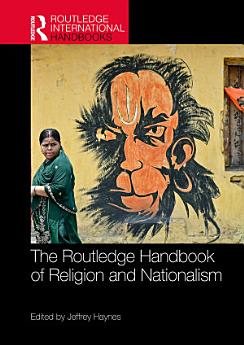The Routledge Handbook of Religion and Nationalism
About this ebook
The handbook has a global focus, including sections on how, why and with what effects religion and nationalism impact politically both domestically and internationally, as well as discussing the future of the field and religious nationalism ‘on the ground’. Bringing together a range of expert contributors, the handbook is split into two main parts: core issues and country case studies. Religions studied include Islam, Christianity, Hinduism, Judaism and Buddhism, across countries in Asia, Europe, the Middle East and North Africa, Sub-Saharan Africa, North America and South America. The core issues examined cover nationhood as a concept; historical perspectives on nationalism; theoretical approaches to nationalism; the state; populism; violence and conflict; immigration; terrorism; globalisation; the post-secular world; and foreign policy.
Given the comprehensive nature of the handbook, it provides crucial, complementary reading for students, scholars and professionals across politics, religion and policy making.
About the author
Jeffrey Haynes is Emeritus Professor of Politics at London Metropolitan University, UK. His areas of expertise are religion and international relations, religion and politics, democracy and democratisation, development studies and the politics of Ghana. He is the author or editor of more than 60 books. He received the International Studies Association Religion and International Relations Section’s Distinguished Scholar Award in 2016. He is Co-Editor-in-Chief of Democratization and Series Editor of the book series Routledge Studies in Religion and Politics.







